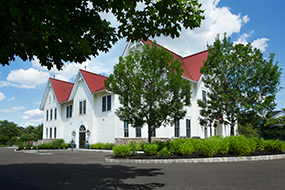Did you know that a majority of brain injury survivors almost never recover? There are those who still experience physical, cognitive, and emotional symptoms even 10-15 years after their brain injury treatments.
Many patients feel that there is a huge gap between their successful treatment and full recovery. Even if they have already “graduated” from rehabilitation and considered by doctors to have executive function, brain injury patients still have a long way to go. They experience symptoms every now and then and still feel deficit, especially for additional support.
This is a long-standing challenge that brain injury survivors have to overcome. It’s an “invisible” injury that only fellow survivors can understand — they look good and feel good, but have their own unique symptoms such as headaches, sensitivity to light, among others.
Most Important Part of Brain Injury Recovery
The recovery process of brain injury is a long and often discouraging journey. Survivors come out of the injury a different person from who they were before, and they have the tendency to look back and mourn who they used to be.
It’s easy to get caught up in what survivors can’t do. But the key is having a positive attitude and the encouragement to move in a different direction. These are the two most important parts of brain injury recovery:
Invest in Time
Brain injury recovery is like a full-time job. Survivors have to map out their day and be organized. Write down a list of things that can be accomplished and check them off as soon as they are done.
Things like reading an article about brain injury, listening to a podcast, eating a nutritious meal, taking a walk, and other simple things are all very valuable accomplishments. These might seem like baby steps, but any forward motion is a marathon for a brain injury survivor. So they should be proud of every small step they take.
Celebrate your small accomplishments
Even the smallest steps can go a long way in helping a brain injury survivor cross that long road to recovery. Having a positive attitude and celebrating small accomplishments are critical parts of recovery as well. Brain injury survivors must learn how to appreciate small steps — even if they take two steps forward and one step back.
At the end of the day, they should make it a habit to tell themselves, “I got this, I can be successful at this. I can see the light at the end of the tunnel.” This positive reinforcement will help keep them going.
Where Brain Injury Survivors Can Turn For Support
Support is one of the things a lot of brain injury survivors crave for. Because no one can completely comprehend what they are going through, they need people with shared experiences to turn to.
Here are some resources that can help:
Mind Your Brain Foundation
The Mind Your Brain Foundation is a non-profit organization that focuses on helping brain injury survivors lead meaningful and productive lives. The executive director, Candace Gantt is a TBI survivor herself, and her experiences have led her to start a movement that offers people like her resources, rehabilitation options, and a community to help achieve their highest potential.
In the Mind Your Brain Foundation, survivors can enjoy fellowship activities and workshops and be introduced to world-class experts in the field who can help them with their unique challenges.
Brain Injury Association of Pennsylvania (BIAPA)
The Brain Injury Association of Pennsylvania is an organization that supports education, advocacy, and research in the field of brain injury. They have very valuable resources that survivors can tap into should they need extra information and support.
The BIAPA also has a Brain Injury Resource Line (BIRL) that survivors can call to speak to a volunteer about their challenges and gain resources that could be of help. The telephone number is 1-800-444-6443.

